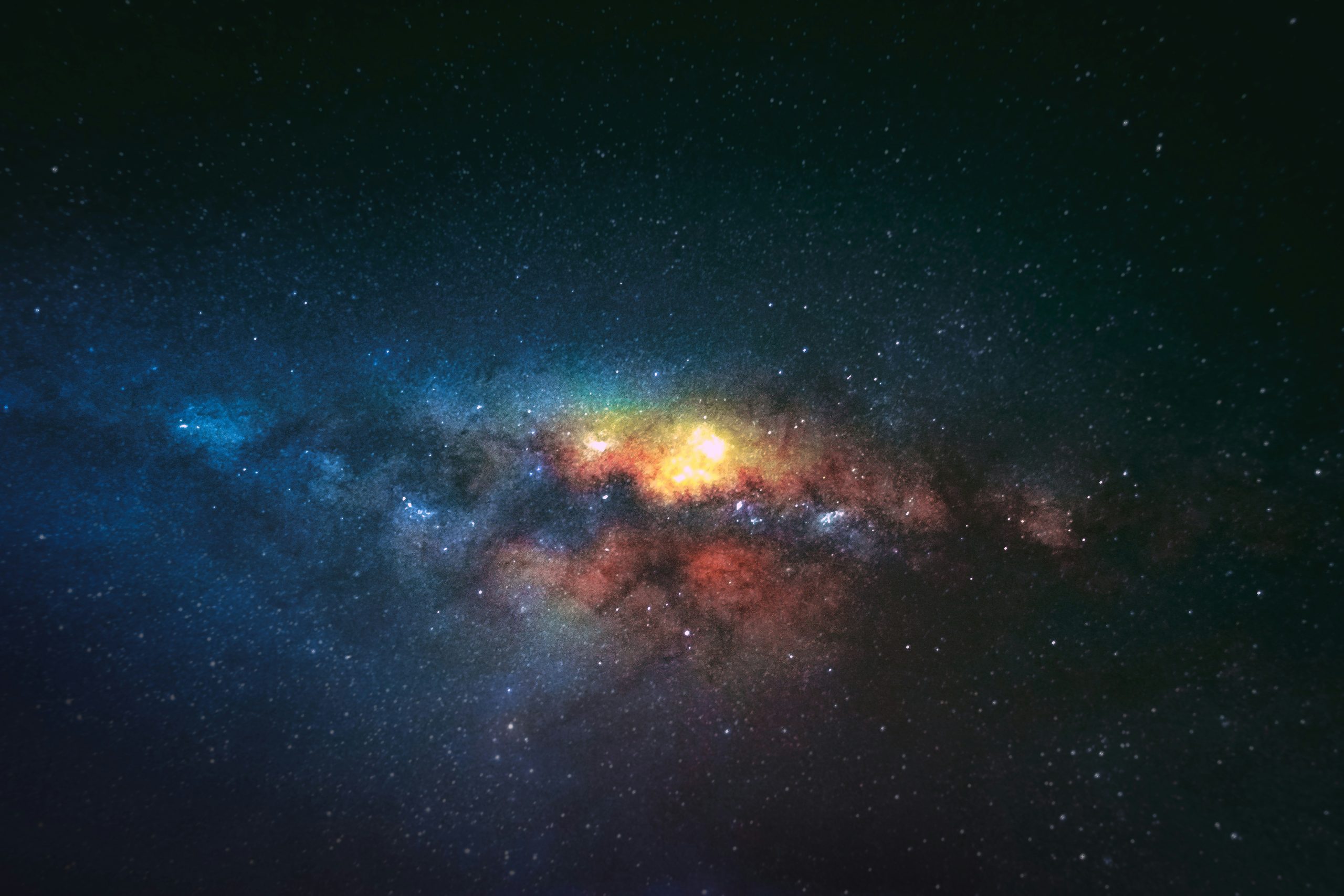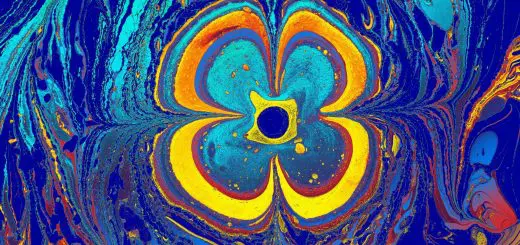Quantum Cosmology: Unraveling the Mysteries of Creation

Looking for more amazing products? Check out our online store and explore our collection here! Happy shopping!
Before diving in, please note: This post is for informational purposes only. If you’d like to know more about how we approach topics, feel free to check out our friendly Disclaimer Page.
Hey there, amazing readers! 
We’re committed to delivering quality posts, and your support (even just sticking around despite the ads) means everything to us. So, bear with us, and thanks for helping us keep the good vibes rolling. Now, on to the fun stuff!
TRANSLATE BUTTON AT THE END OF THE ARTICLE
Introduction to Quantum Cosmology
Quantum cosmology is a fascinating field of study that combines the principles of quantum mechanics and cosmology to understand the origins and evolution of the universe.
It delves into the realm of the very small and the very large, exploring the fundamental building blocks of the cosmos and the forces that govern its expansion.
By navigating the complexities of quantum mechanics and the vast expanses of the cosmos, quantum cosmologists seek to unravel the mysteries of creation and uncover the secrets of the universe’s birth.
The Big Bang Theory: A Brief Overview
The Big Bang theory is the prevailing cosmological model for the observable universe’s earliest known periods.
It posits that the universe originated from a singular point of infinite density and temperature, known as a singularity, around 13.8 billion years ago.
This event marked the beginning of space, time, and matter as we know them today.
The expansion of the universe from this initial singularity led to the formation of galaxies, stars, and planets over billions of years.
The Role of Quantum Mechanics in Cosmology
Quantum mechanics, the branch of physics that describes the behavior of particles at the smallest scales, plays a crucial role in cosmology.
At the moment of the Big Bang, the universe was in a state of extreme density and temperature where quantum effects were dominant.
Understanding how quantum mechanics influenced the early universe is essential for unraveling the mysteries of creation and determining the fundamental laws that govern the cosmos.
Understanding the Origin of the Universe
Quantum cosmology seeks to answer the fundamental question of how the universe came into existence.
By combining the principles of quantum mechanics with cosmological models, researchers aim to provide a comprehensive explanation for the origin of space, time, and matter.
Through meticulous analysis and theoretical calculations, quantum cosmologists strive to uncover the underlying mechanisms that led to the creation of the universe we inhabit today.
Quantum Fluctuations and the Early Universe
Quantum fluctuations are tiny variations in energy that arise at the quantum level due to the inherent uncertainty of particles’ positions and velocities.
These fluctuations may have played a significant role in shaping the early universe during its rapid expansion after the Big Bang.
By studying how quantum fluctuations interacted with cosmic inflation, researchers can gain insights into the formation of cosmic structures and the distribution of matter in the universe.
The Multiverse Theory: Parallel Universes?
The multiverse theory is a speculative idea that proposes the existence of multiple universes, each with its own set of physical laws and constants.
Quantum cosmology explores the possibility of parallel universes existing alongside our own, each with its unique properties and characteristics.
While the multiverse theory is still largely theoretical, it presents an intriguing avenue for understanding the vastness of the cosmos and the potential for diverse forms of reality.
String Theory and Quantum Cosmology
String theory is a theoretical framework that aims to unify the fundamental forces of nature and describe particles as tiny vibrating strings.
In the context of quantum cosmology, string theory offers a way to reconcile quantum mechanics with general relativity and provide a more comprehensive understanding of the universe’s origins.
By incorporating string theory into cosmological models, researchers can explore the dynamics of the early universe and the fundamental forces that govern its evolution.
Dark Matter and Dark Energy in the Universe
Dark matter and dark energy are two mysterious components that make up the majority of the universe’s mass-energy content.
While dark matter exerts gravitational effects on visible matter, dark energy is responsible for the accelerated expansion of the universe.
Quantum cosmology aims to shed light on the nature of dark matter and dark energy, uncovering their roles in shaping the large-scale structure of the cosmos and influencing its ultimate fate.
Black Holes: Gateways to Quantum Cosmology
Black holes are regions of spacetime where gravity is so intense that nothing, not even light, can escape.
These cosmic phenomena play a crucial role in quantum cosmology by providing insights into the interplay between gravity, quantum mechanics, and the structure of spacetime.
By studying black holes and their properties, researchers can unravel the mysteries of quantum gravity and the nature of singularities, furthering our understanding of the universe’s fundamental principles.
The Cosmic Microwave Background Radiation
The cosmic microwave background radiation is the afterglow of the Big Bang, a faint glow of radiation that permeates the universe.
Explore the Path to Spirituality and Enlightenment – Start Here.
This relic radiation provides a snapshot of the early universe’s conditions, offering valuable insights into its composition, temperature, and dynamics.
Quantum cosmologists analyze the cosmic microwave background to test cosmological theories, refine models of the universe’s evolution, and uncover clues about its origins and fundamental properties.
The Search for a Unified Theory of Everything
One of the central goals of quantum cosmology is to find a unified theory that can explain all the fundamental forces and particles in the universe.
Known as the "Theory of Everything," this comprehensive framework would unite quantum mechanics with general relativity and provide a complete description of the cosmos at both the smallest and largest scales.
By seeking a unified theory, researchers hope to unlock the secrets of creation, understand the nature of spacetime, and address the most profound questions about the universe’s existence.
Implications of Quantum Cosmology for the Future
Quantum cosmology holds immense potential for reshaping our understanding of the universe and the forces that govern it.
By unraveling the mysteries of creation and exploring the fundamental principles of quantum mechanics, researchers can gain insights into the universe’s origins, evolution, and ultimate fate.
The implications of quantum cosmology extend beyond theoretical physics, with potential applications in technology, philosophy, and our broader understanding of reality.
As quantum cosmology continues to evolve, it promises to revolutionize our view of the cosmos and deepen our appreciation for the wonders of the universe.
Conclusion
In conclusion, quantum cosmology represents a cutting-edge field of study that seeks to unravel the mysteries of creation and understand the fundamental principles that govern the universe.
By combining the insights of quantum mechanics with cosmological models, researchers aim to shed light on the origins, evolution, and ultimate fate of the cosmos.
From the role of quantum fluctuations in shaping the early universe to the search for a unified Theory of Everything, quantum cosmology offers a comprehensive framework for exploring the deepest mysteries of the cosmos.
As research in this field continues to progress, we can look forward to new discoveries, groundbreaking insights, and a deeper understanding of the universe we inhabit.

The Enlightenment Journey is a remarkable collection of writings authored by a distinguished group of experts in the fields of spirituality, new age, and esoteric knowledge.
This anthology features a diverse assembly of well-experienced authors who bring their profound insights and credible perspectives to the forefront.
Each contributor possesses a wealth of knowledge and wisdom, making them authorities in their respective domains.
Together, they offer readers a transformative journey into the realms of spiritual growth, self-discovery, and esoteric enlightenment.
The Enlightenment Journey is a testament to the collective expertise of these luminaries, providing readers with a rich tapestry of ideas and information to illuminate their spiritual path.
Our Diverse Expertise
While our primary focus is on spirituality and esotericism, we are equally passionate about exploring a wide range of other topics and niches 

To ensure we provide the most accurate and valuable insights, we collaborate with trusted experts in their respective domains 
Our blog originally focused on spirituality and metaphysics, but we’ve since expanded to cover a wide range of niches. Don’t worry—we continue to publish a lot of articles on spirituality! Frequently visit our blog to explore our diverse content and stay tuned for more insightful reads.
Hey there, amazing reader! 
Check out our store here and take a peek at some of our featured products below! Thanks for being awesome!














